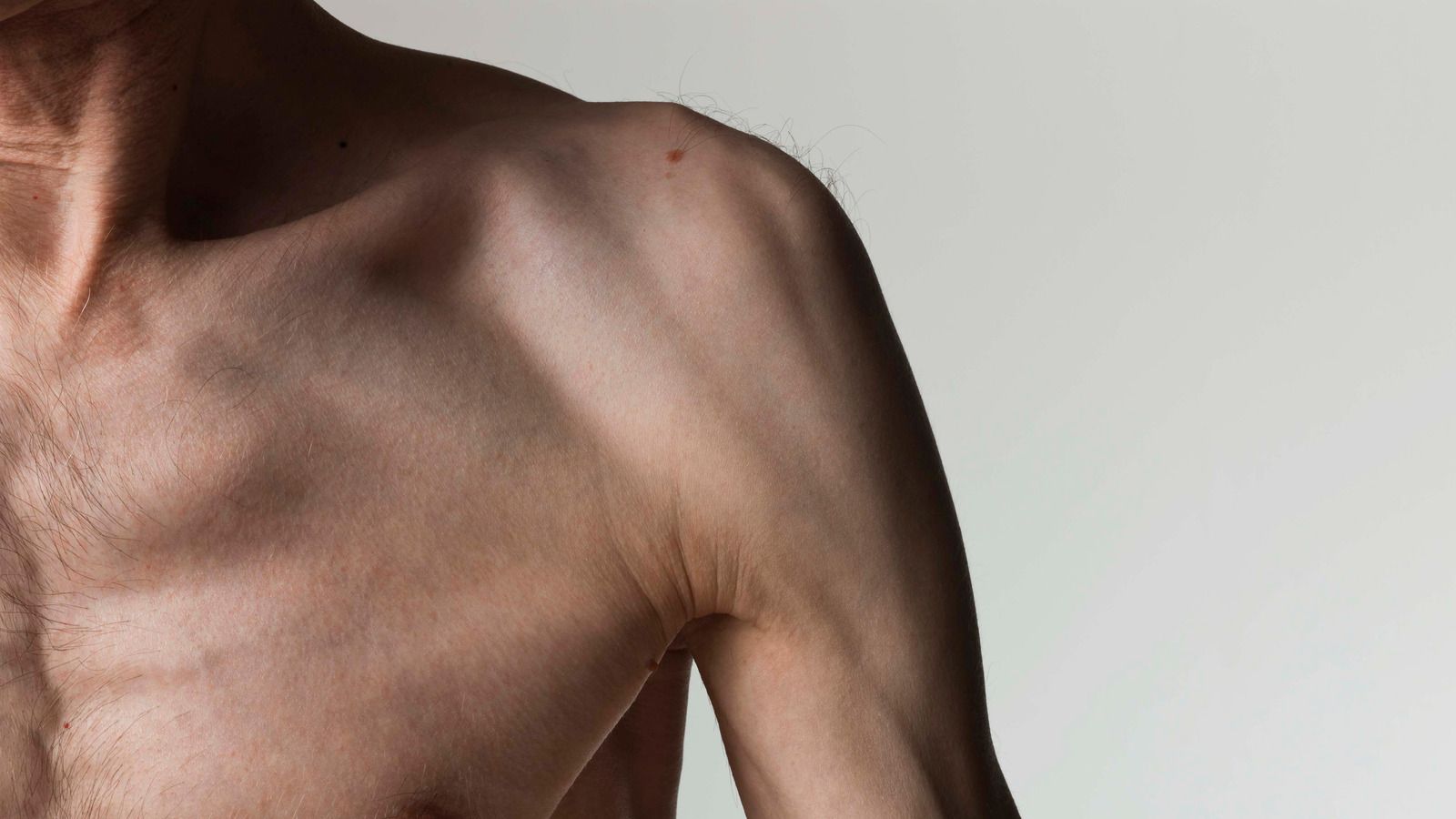
The best online fitness resource you'll ever need. We filter out the BS to ensure you meet your health and fitness goals!

The best online fitness resource you'll ever need. We filter out the BS to ensure you meet your health and fitness goals!

If you were to tell anyone that you were only eating 700 calories a day, that person would likely tell you that it was incredibly dangerous to do. Yet, it sits in a banner of actual diets that are often prescribed by doctors. So surely, that means that it must be healthy and net you results, right? Why, then, is it not often discussed in the mainstream as a viable way to lose weight? Is eating 700 calories a day safe?

Diets of 800 calories and less sit in the category of Very Low-Calorie Diets. Low Calorie and Very Low-Calorie diets are recognized alongside other mainstream diets such as Carnivore, Keto, Atkins, Paleo, Intermittent Fasting, and more. They all work exactly the same way. They put the body into a calorie deficit and over time the dieter loses body fat. So, if 700 calorie diets are prescribed by doctors for weight loss, does that not then mean that we can all follow them to lose weight when we need to?
Well, let’s unpack that.
Very Low-Calorie Diets (VLCD) are medically supervised diets that are used to help specific groups of people with a number of medical conditions. Often the aim is to help them to rapidly lose weight so that this drop in weight can help manage or reverse certain risk factors for particularly life-threatening conditions. VLCD’s are often prescribed to patients with type-2 diabetes. Losing enough weight in a short amount of time can help move them from an at-risk category into what would normally be considered a normal or safe BMI for their height. 700 calorie-a-day diets are not without their risks, however, and should only ever be attempted under medical supervision.
VLCDs are also known as semi-starvation diets and, if run unmonitored, can cause sudden cardiac arrests if the nutrients that are being ingested are unbalanced. It’s a really serious undertaking and it can not be stressed enough that these should only be attempted under medical supervision.
There needs to be a clinical rationale for the rapid weight loss.
Eating 700 calories a day is an incredibly challenging task, however, it is true that it can result in rapid weight loss. Albeit, not in the recommended fashion.
Body fat is simply stored calories. Our weight can be maintained simply by eating the number of calories that match our daily expenditure. This is known as our Total Daily Energy Expenditure. It combines our Basal Metabolic Rate which we burn at complete rest, our calories burnt when we’re active and the calories burnt digesting food.
Whenever someone eats above their maintenance calories and enters a ‘calorie surplus’ the extra calories are stored as body fat because body fat, otherwise known as adipose tissue, is an incredibly convenient place to store energy on the body. Over time, as the surplus continues, the body fat grows and grows. This is what causes people to become overweight or obese over an extended period of overeating or being sedentary. If a person remains obese for a long period of time they are then at risk for certain health problems such as type-2 diabetes and heart disease.
In order to reverse obesity, the person needs to be in a calorie deficit. Whereby the energy expended every day exceeds the energy consumed. Effectively, burning more calories than you eat. This is known as the energy balance equation.
Men and women, on average, need to consume between 2000 and 2500 calories a day to maintain their body weight and provide the body with enough nutrients to run efficiently. Protein is used to build and repair cells and muscles in the body. Carbohydrates give the body enough energy to function. And dietary fat helps with hormone production and energy in the absence of carbs.
All of this is included within the 2000 or so calories adults are expected to eat.
Reducing this down to 700 puts the body at risk of malnourishment. But, if the body is in a calorie deficit it loses body fat over time. So it is true that weight loss will be achieved.
1lb of body fat is equal to about 3500 calories. If you eat 500 calories per day above your maintenance calories, you will accumulate around 1lb of fat per week.
If you only eat about 700 calories per day, that is, on average, about 1300 calories below an adult’s maintenance. That is equal to a loss of about 2.5 pounds, or 1kg, of fat loss per week.
While all of this is great if rapid weight loss is the goal, can it be said that the potential result outweighs the risks?

As mentioned earlier, food provides for the body in a number of ways. If one was to suddenly reduce their calories they would be depriving the body of a number of important vitamins, minerals, nutrients, electrolytes, proteins, and fatty acids.
The NHS has observed the following side effects of VLCDS over the short term:
Other, more serious, side-effects include acute gout, cholelithiasis, and psychosis.
Some have even died, although this admittedly is rare.
As previously mentioned the average adult’s daily recommended calorie intake should be about 2000 calories. Split across 3 meals a day that’s just under 700 calories per meal. On a 700 calorie day diet that can seem quite daunting to maintain. Not only could this be wiped out with one average-sized meal, but in order to avoid some of the side effects, it’s important to try and include as many of the essential vitamins, minerals, and nutrients as the body needs in such a small allowance.
The typical medically supervised way to achieve this is through specially made meal replacements. These take the form of soups and shakes that contain everything the body needs to avoid any potential nutrient deficiencies.
These rapid weight loss programs are not forever, and often only run for a maximum of 12 weeks before the participant is managed back up to maintenance in an attempt to maintain their new weight through more regular eating habits.
Whilst meal replacement shakes are available from most places online, especially sport supplement vendors, they don’t always contain everything someone would need to manage a VLCD diet for long. If you were looking to attempt this without medical supervision, firstly it would be recommended that you don’t and instead choose a more sustainable low-calorie diet. As it is possible to eat low calories and remain relatively safe.
There are many high volume low-calorie options out there such as tuna salads with plenty of leafy greens, chicken soups with plenty of vegetables, or egg-based breakfasts with toast and asparagus.
If you ever find yourself attempting a VLCD but struggling to lose weight, it likely will be because you are either not counting your calories correctly, either by not weighing your food properly, or you are attempting to create some of the above recipes but including condiments that you are not accounting for.
Sauces, oils, and butter all contain more calories than we think.
Fat loss is not the only outcome when it comes to rapid weight loss. Aside from a considerable drop in body fat over a relatively short amount of time, there are a number of other physiological adaptations that occur.
One of the biggest independent risk factors for type-2 diabetes is being in the obese BMI category. Considerable body fat gain can impair the body’s sensitivity to insulin. Insulin is an important hormone. It’s responsible for several processes within the body but one of the main ones is reducing your blood sugar levels. An inability to control blood sugar is what leads to type-2 diabetes and all the associated health problems that come with that. A rapid reduction in body fat, specifically around the pancreas where insulin is produced, has been observed to reduce the symptoms of type-2 diabetes and even cause it to go into remission for some patients.
However, whilst this is seen as a positive of a VLCD, this has also been observed in patients following less restrictive diets. Which should always be attempted in the first instance.
Many people associate hydration with simply drinking water. However, this is not the only proponent of continual hydration. Glycogen is the body’s stored form of carbohydrates and is found in the muscles. When we are active we deplete these energy stores. When this happens the body turns to stored fat until the glycogen stores are resupplied through carbohydrates. Glycogen pulls in water from the body and holds onto it until it’s burnt off.
Following a 700 calorie diet means the body isn’t storing enough glycogen. And as a result is not holding onto enough, or any, water. This rapid loss of water weight is presented as fat loss. This is used as a selling point for following many low-carb diets. However, water weight loss is not the same as body fat loss.
Being regularly dehydrated can result in a number of its own risks. Some are muscle cramps, confusion, irritability, and lack of available energy.

When the body is low on energy it tries to conserve as much as it can by reducing its autonomous functions and thereby reducing the rate of caloric expenditure. Many people confuse this with the often misunderstood state called ‘starvation mode. It’s oft-reported that if the body goes into starvation mode it will hold on to body fat and try to preserve it. This is not quite true.
The body will definitely try to lower its energy expenditure in order to tip the energy balance equation more towards maintenance, as every action burns calories. However, it’s still true that in a calorie deficit the body will lose body fat.
Metabolic adaptation is the term used to describe this phenomenon of lowering autonomous calorie burn.
A VLCD robs the body of its nominal amount of calories. And much like a toy with a low battery slows down, so too does the body. When we are full of energy we pace more, our hands and feet twitch, our minds are sharper. But on a VLCD none of these things tend to happen. And we spend our time in a more sluggish and sedentary state of being.
And the less we move, the fewer calories we burn.
Anyone who has ever attempted a large cut following a body-building bulking phase will know that there is always some risk of muscle loss. Despite all their best efforts in the gym, in a calorie deficit, it’s difficult to stick within a net anabolic state. And there is always some loss of strength and size.
The body requires protein, energy, and resistance training to grow and maintain muscle mass. When put in a situation that reduces the protein intake and the energy to go into the gym the body will over time start to cannibalize its muscle mass. Causing you to become weaker as well as thinner.
Muscle mass and bone strength are important. Moreso the older we get. And the more we reduce it, the more we are at risk of injury.

Will you lose weight on a 700 calorie diet? Yes. Absolutely. Is it healthy? Considering it is widely advised that diets of this nature are only to be attempted under medical supervision, it’s safe to say it’s not absent of risk.
In the pursuit of the perfect body, it’s not a surprise that most people will turn to the diet that gets them the most results in the shortest amount of time. However, the old saying ‘buy cheap pay twice’ should also be in the back of your mind when you’re looking into your eating habits.
Rapid weight loss, among other things, is usually followed up with rapid weight re-gain. Not only is a 700 calorie diet incredibly restrictive. But, it’s also seriously unsustainable and is often followed up by a binge eating phase.
All roads lead to Rome. All diets result in weight loss because all diets manipulate the energy balance equation and put you into a calorie deficit.
700 calories may sound appealing because it could lose you 1kg of body fat a week.
But whether the risks and possible misery are worth it is really up to you.
Other more sustainable diets are available.